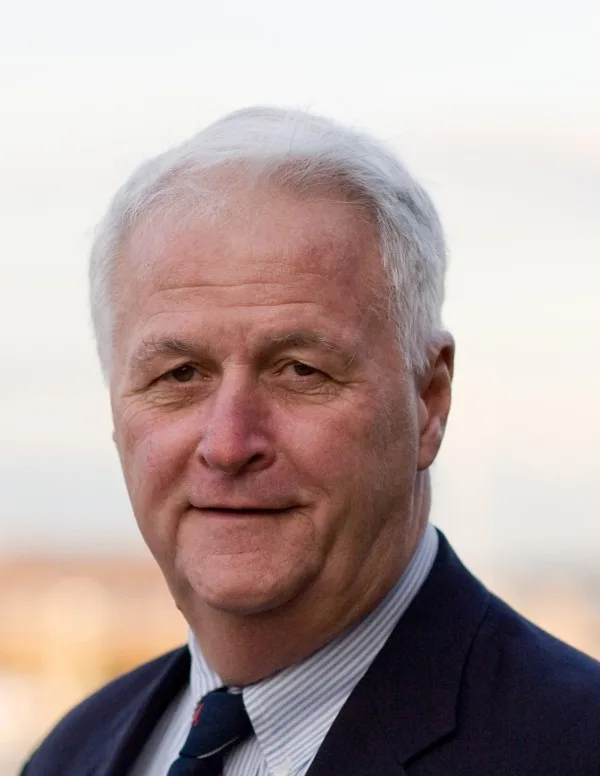Former U.S. congressman says Ecuador has undergone a ‘top-to-bottom transformation,’ and is now a standard for stability in Latin America
By William D. Delahunt
The Ecuadorian people have endured much over the last three decades – lurches between faile d governments, irresponsible international companies eschewing their investment commitments, horrific oil pollution poisoning their environment, and a restless, impoverished population seeking a better life elsewhere.
d governments, irresponsible international companies eschewing their investment commitments, horrific oil pollution poisoning their environment, and a restless, impoverished population seeking a better life elsewhere.
When I joined a U.S. Congressional delegation to Ecuador a decade ago, I saw firsthand the struggle of the Ecuadorian people against these daily challenges. After a return visit last year, I was fortunate to see that they have not only overcome these difficulties, but they have made a top-to-bottom transformation that has made Ecuador a beacon of prosperity and stability in Latin America.
There are new airports and roadways all around, which required a substantial investment but have had a dramatic, positive impact on the country’s economy. Some of the best evidence of this transformation is that while here in the United States we have a contentious debate about immigration from Latin America, Ecuador is welcoming back any of its citizens who sense new opportunities and an improved living standard.
And it’s not just Ecuadorians who are returning home – Americans are retiring to the country in record numbers because of its economic progress and strong healthcare system. These American émigrés are joined by well-known companies like Google and General Motors, both of which are investing heavily in Ecuador. Coca-Cola alone has committed $1 billion in investments in Ecuador over the next few years.
This truly is a story of a small country that overcame the odds and succeeded.
However, Ecuador still lacks one important ingredient to its continued development. Justice. On my recent trip to Ecuador, I observed firsthand the environmental damage to the Amazon rainforest caused by irresponsible oil drilling by an American company dating back half a century. It broke my heart to visit areas where I saw plants and foliage still completely coated with oil, despite the fact that drilling there ended 25 years ago. It was gut wrenching to see paths well-travelled by indigenous Ecuadorian people coursing straight through abandoned toxic waste pits that to this day smell of oil.
While I was there, Ecuador’s government convened experts from around the world to discuss about how best to address this oil pollution. We also saw firsthand how Ecuador is not repeating past mistakes. The oil sector has introduced state-of-the-art technology to extract and transport oil while making sure it does not pollute the rainforest or affect the indigenous population.
However, one of Ecuador’s remaining challenges has been to convince the polluter of its rainforest to do the right thing and clean up the mess they created in the Ecuadorian rainforest: Texaco, the oil company bought by Chevron in 2001.
While there were some half-hearted attempts to clean up the mess by Texaco decades ago, evidence has now surfaced that they quite literally tried to bulldoze dirt over it – at best. Texaco’s new owner, Chevron, has made it clear it won’t pay despite this subterfuge – threatening to extend litigation beyond hell freezing over.
This ecological disaster and response should be a global concern – and responsibility. The Soviet Union helped its archrival, the United States, when the Exxon Valdez spilled oil in Alaska. Other countries, including Mexico and Sweden, volunteered resources when BP spilled millions of barrels of oil in the Gulf of Mexico. And now the United States and China have partnered to cut carbon emissions to help control climate change.
The same international collaboration must be done to clean up the Ecuadorian rainforest.
While the Chevron-Ecuador litigation seems to be an interminable path – two decades and counting—the rainforest and indigenous people of Ecuador can no longer wait. Chevron touts its corporate responsibility and the importance of “every single employee doing the right thing, every single day.” Now it must show that it truly lives by those words and help those hurt by Texaco.
We all have a vested interest – and responsibility – in resolving this tragedy that befell the indigenous people in the Ecuadorian Amazon rainforest. Ecuador’s triumph is in no small way a triumph for all of us. Not only do we depend on the vitality of the Amazon rainforest, one of the most bio diverse regions on the planet, but we depend on the proliferation of our democratic values to solve the problems of the modern era. Ecuador, through its robust democracy and its courts, has sought justice for its people. We owe that to Ecuador.
Editor’s note: William Delahunt, a Democrat, served in the House of Representatives from Massachusetts from 1997 to 2011.





















